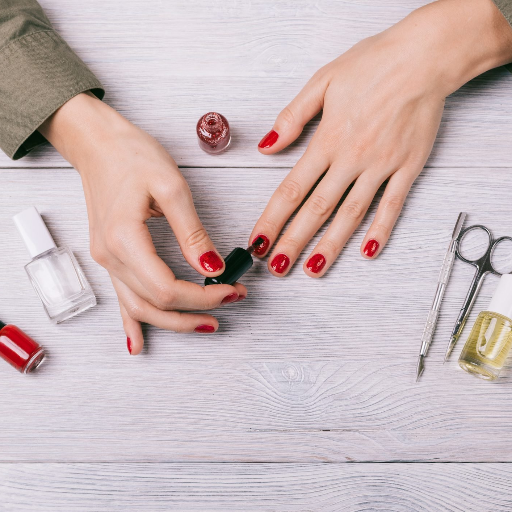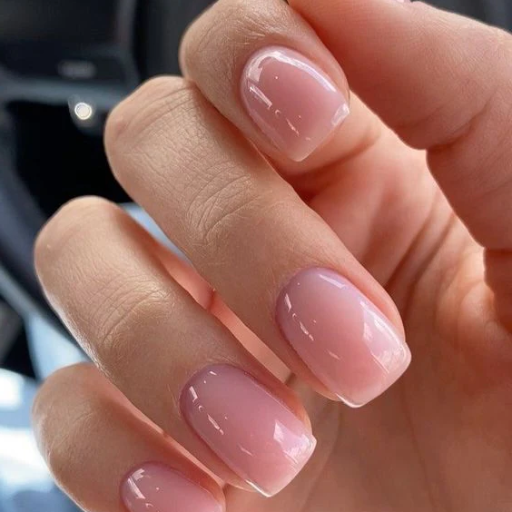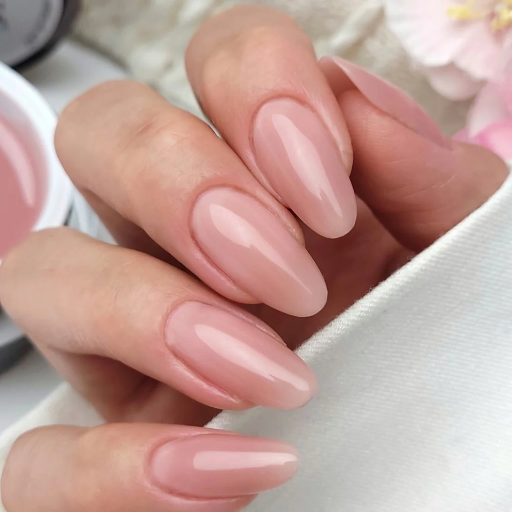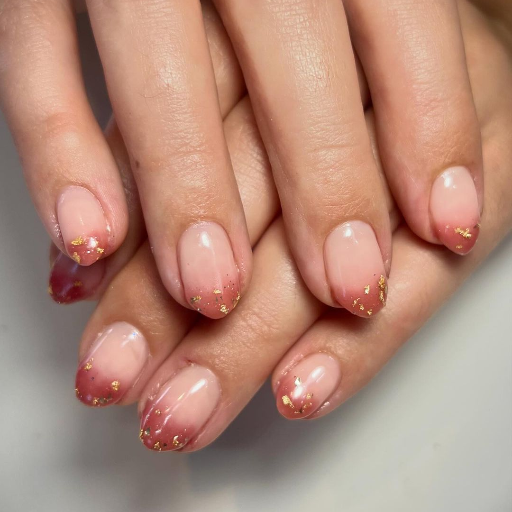The skin barrier is the outermost layer of skin that protects from outside attackers like pollution, and bacteria while preserving the skin’s general state. If this shield is damaged, it can result in all sorts of problems such as rashes, flakiness, or sensitivity. It is paramount to be able to spot a damaged skin barrier, as it enables one to take the necessary steps to heal it.
This article aims to educate on how to spot a weakened skin barrier, including its possible causes. It will further provide means and ways certified by science to strengthen and maintain the dermal barrier. By the time you are through, you will be aware of the symptoms the skin will show, as well as how to take care of your skin.
What are the signs of damaged skin?

A skin barrier that is not functioning properly usually has distinct signs that indicate its state of deterioration. Common symptoms include dryness, flakiness, or peeling of the skin which is unresponsive to the usage of moisturizers and other emollients. Even more common complaints are excessive sensitivity of skin or erythema in conjunction with burning or stinging pain upon application of skin care products. Apart from these symptoms, the injured barrier is also likely to include rough or irregular skin, inflammation, and an increase in the frequency of acne or infections. The inflammation stems from the inability of the skin to effectively retain moisture or shield itself from environmental hazards, and hence remedying the condition becomes imperative.
Common symptoms of skin barrier damage
Various elements can play a detrimental role in the skin barrier including internal and external factors. The excessive use of strong skin care products that include alcohols, sulfates, or strong exfoliating acids, dries up the skin, which also results in a weak barrier. Additionally, oxidative stress or moisture depletion which is caused by environmental issues such as pollution, ultraviolet rays, or extreme weather conditions can cause even further issues for the barrier. Moreover, poor eating habits, lack of water, and high levels of stress may also affect the region’s self-healing mechanism. Further, skin conditions such as psoriasis, eczema, or acne, may also impact the skin barrier as a whole which needs addressing. With such knowledge at hand, approaches or therapies focused on restoring and preserving barrier health can be put in place.
How to tell if your skin barrier is compromised
A compromised skin barrier often displays several telltale signs, which include persistent dryness or flakiness, redness, and increased sensitivity. You may experience heightened reactions to skincare products that previously did not irritate, or notice a stinging or burning sensation when applying them. Other indicators include excessive oiliness resulting from the skin trying to overcompensate for moisture loss, and a rough or uneven texture. Skin prone to frequent breakouts, inflammation, or slow wound healing can also point to an impaired barrier. Recognizing these symptoms early is crucial for taking corrective measures to restore barrier function effectively.
Recognizing damaged skin barrier in different skin types
Due to the various features and reactions to environmental factors of distinct skin types, recognizing skin barrier damage will be done slightly differently for each skin type. For instance, with dry skin type, deeper levels of barrier damage are likely to present in the form of increased flakiness, rough patches, and even some irritations or redness when one uses skincare products. On the other hand, oily skin can show excessive shine and clogged pores which occur when the oily skin type is said to be making too much sebum to cover the damaged barrier. Combination skin type is a mixture of these skin types, most areas are dry and sensitive such as the cheeks while some areas are oily such as the T-zone. Understanding these problems at the onset is especially important from a general perspective in developing anti-aging skin care measures targeting all skin types.
What causes skin barrier damage?

The skin barrier is affected both from the outside and inside. A very well-known internal practice is over-cleansing or applying products that can be an extreme turn-off for the skin and will only strip its natural oils. Once this takes place the lipid matrix involved in barrier worrying is disturbed. Another external characteristic would be environmental stressors which range from excessive UV exposure, and pollution as well as extreme temperatures. An unbalanced pH and cross friction through over-exfoliating could impact an alcohol-based barrier. Nutritional problems, dehydration, and stress may reinforce internal shielding methods, however, these can damage them. It is crucial to know about such causes to ensure that further damage is kept at bay and efficient care of the skin is provided.
Understanding the cause of skin barrier issues
Dry skin problems can arise from both external and internal factors thus it has to be approached and cared for in a multi-faceted way. The skin is exposed to various elements like the harsh use of cleansing agents, pollution, and the sun which is related to dermatology, If you wash your skin too often it could even lead to you over-exfoliating. It is known that stress, the lack of water in the body, lack of hydration, and lack of essential amino acids might cause the lipid mesh to weaken this mesh’s main function is to ensure water retention and irritation management.
Luckily, these issues can be tackled with the use of pH-balanced cleansers, ceramide-based moisturizers, and broad-spectrum sunscreen. Apart from these cosmetics, active components such as omega-3, antioxidants, and drinking water can target cellular recovery. Regular exercises or stress management techniques can be of aidable use in normalizing the body conditions for a well-functional barrier. Thus Evidence-based skincare practices and a comprehensive approach are quintessential for the skin barrier to recover its original condition.
Factors that damage your skin barrier
The integrity of the skin barrier can be compromised by several factors, wherein a person would experience increased sensitivity, dryness, and irritation. For instance, overwashing or the use of harsh soaps can emulsify the natural lipids which can compromise the protection mechanism of the skin. Furthermore, environmental aggressors like UV radiation, pollution, and extreme weather can all induce oxidative stress on the already damaged skin cells. Additionally, the application of several skincare products that contain strong acids, alcohol, or a lot of fragrance can harm the pH balance of the skin leaving its microbiome vulnerable. Stress levels inside the body, dietary choices, and dehydration are other factors that can defeat the moisture and self-repair properties of the skin. It is important to understand and counter the conditions mentioned above as they enable a more fortifying and effective skin barrier.
How lifestyle choices damage the skin barrier
Lifestyle choices play a major role in the status of the skin barrier, thus affecting its functionality as a protective shield against external factors. Inadequate nutrition which includes excessive intake of refined sugars and unhealthy fats induces inflammation and glycation which in turn weaken skin proteins e.g. collagen and elastin. Lack of sufficient H2O results in chronic dehydration which decreases skin elasticity and as well as moisture retention capacity. Another important one is lack of sleep, it diminishes the rate of skin repair such as collagen while on the other hand increases the levels of stress hormones like cortisol which in effect breaks down collagen as well as promotes inflammation.
Alcohol intake also alters the function of the skin barrier since it results in dehydration thereby in turn reducing the levels of Vitamin A, which is essential for skin recovery. Smoking brings in toxins that degrade collagen and elastin, in turn, increases the rate of getting older and also interferes with the natural healing of the uppermost layer of the skin. A lack of exercise can lower blood circulation and slow down the delivery of oxygen and nutrients to the cells hence dulling the skin and making it look lifeless. Moreover, prolonged stress causes high cortisol levels and this results in high oil levels which leads to acne amongst other diseases. In restoring and protecting the skin barrier, improved nutrition, physical activity and way of life are necessary.
How can you repair a damaged skin barrier?

In reconstructing a compromised skin barrier, a skincare regimen that focuses on moisture, nourishment, and barrier reinstatement features prominently. Step one, incorporate a mild, pH-balanced cleanser that keeps skin’s oil from over cleansing. Also, focusing on moisturizers that have ceramides, hyaluronic acid, as well as fatty acids aids in the recovery of the barrier function and retention of moisture. Stay away from harsh scrubs, over-cleansing, and strong scents or irritating products as they cause more damage. Furthermore, daily utilizing broad-spectrum sunscreen wards the skin from excessive UV radiation which otherwise could damage the barrier further. Rigorously doing these, while eating healthily and managing lower stress levels assists the skin in naturally healing in the long run.
Effective ways to fix a damaged skin barrier
That’s an interesting viewpoint! Given the context and my understanding, here is what I presume:
When it comes to treating a compromised skin barrier, I focus on hydration by including ceramide, hyaluronic acid, and glycerin-containing products. These ingredients help replace lost moisture in addition to deepening the barrier. In place of aggressive exfoliating agents and cleansing agents, I prefer to use a gentle pH-neutral cleanser to avoid further irritation. I never skip using broad-spectrum sunscreen to avoid skin damage due to sun exposure. I make sure that I am also making cover with such practices and have an antioxidant and omega fatty acid-rich diet, as well as trying to ease stress so that over time I help my skin repair itself.
Importance of a consistent skincare routine
Why is it necessary to adhere to a regular skincare regime? This is essential for the care of the skin since it permits the skin to rectify itself and be functional. Rejuvenation of the skin goes through cycles of around 28 days; hence, well-structured treatment habits, focusing on the individual’s type and issues like age, dryness, acne, and others, enhance the skin’s life. If such active components as retinoids, niacinamide, or peptides are continually applied, they will overall improve the status of the skin by reducing inflammation, thickening the barrier, and lightening uneven skin tone. Otherwise, if active components are not applied or are changed frequently, the absence of skin care will lead to excess irritability and undo progress. Likewise, applying the same routine helps to ensure that balance and strength are present in the skin. Moreover, daily skin care practices like cleansing, proper moisturization, or sunscreen application aids in protecting the skin from overexposure to sun rays, which can lead to skin wrinkles and hyperpigmentation.
Choosing the right skincare products for repair
The skin repair phase necessitates the ingredients to have clinical evidence to support the skin renewal and recovery process, so such ingredients must be sought in the repair of skincare products. Products that include retinoids or bakuchiol are optimal as both enhance cell turnover and collagen production which serve to remedy the fine lines and textured skin. Antioxidants such as vitamins C and E protect the skin by neutralizing the free radicals responsible for causing stress to the skin due to external events like UV rays. Ceramides, hyaluronic acid, and niacinamide are helpful to repair the dehydrated and reddened skin as well as assist in enhancing skin elasticity due to the damaged skin barrier. It is a triad of efficacy, minimization of irritation, and reduction in chances of comedones that helps ensure that the formulations are suited to the individual’s skin type. Understanding the nature of skin and its requirements along with providing the needed care and protection regularly boosts the healing of the skin.
How to protect your skin from future damage?

To safeguard the skin against further damage, certain preventative measures alongside consistency in skincare practices would be effective. Most importantly, applying wide-spectrum sunscreen with a minimum SPF of 30 daily is essential to protect the skin against the harmful effects of UVA and UVB rays. In the morning as part of the routine, antioxidants like Vitamin C must be added to the skincare regime to mitigate the oxidative stress caused by environmental pollutants. Furthermore, carrying out a proper cleansing process would help know the dirt and debris that would inflict further damage skin. One should also avoid over-exfoliation as this may compromise the skin barrier while making sure hydration takes precedence by using hydrating moisturizers rich in hyaluronic acid or ceramides. Better hydration habits, consumption of a more balanced vitamin-rich diet, and reducing smoking or overdrinking are other lifestyle modifications that would benefit skin health. Additionally, regular follow-up visits with a dermatologist help to identify and address skin-related issues early on.
Maintaining a healthy skin barrier
Maintain a healthy skin barrier by using gentle, pH-balanced cleansers. This will help to retain the skin’s oils. Furthermore, consider products with ceramides, cholesterol, and fatty acids – these are key ingredients for repairing and supporting the barrier. Shrink the use of stripping exfoliants and strong actives retinoids and AHAs as they are likely to hypersensitize the skin. Also, for barrier repair and hydration, moisturizers complement occlusives, humectants, and emollients come in handy. Do not disregard applying broad-spectrum sunscreen protection because UV rays may damage the barrier over time. Likewise, consider a blend of Vitamin C and E for pollution and extreme weather protection – this combination is best for combating oxidative stress to the skin.
Steps to prevent skin barrier damage
As part of my daily skincare regime, I do everything possible to safeguard my skin barrier including adhering to simple and gentle practices. While cleansing, I make it a point to use a mild and pH-balanced product. It is essential to keep in mind that moisturizing is the most important step, and therefore, I make sure that I use a moisturizer that contains cholesterols, fatty acids, and ceramides to strengthen and rebuild my skin barrier. Further, I try to use sunscreen daily to thwart harmful UV rays which would otherwise slowly erode my barrier because of the damage it causes. Besides, I minimize the use of exfoliants and active ingredients such as AHAs or retinoids which can lead to skin irritation. Employing powerful antioxidants also enables me to deal with pollution and other external factors that affect the overall health of my skin. With these practices, I can ensure that my skin barrier is kept in a healthy and effective condition.
Tips to keep your skin barrier intact
To bolster a healthy skin barrier, a few advised practices come into focus. In the first place, a gentle pH-balanced cleanser with no harsh ingredients is used instead of harsh cleansers, as they might strip natural oils, which can result in the feeling of having overcleaned skin using exfoliating products. Since they are a crucial ingredient when it comes to maintaining skin hydration, I use moisturizers that contain ingredients such as ceramides, glycerin, and hyaluronic acid I try to use the least amount of irritants, for instance, alcohol and fragrance, in my skincare products. Furthermore, I apply sunscreen in the morning so that it can protect my skin from sun-induced damage. In case I have used retinoids or exfoliants which can be irritating, I use calming ingredients and do not over-incorporate them into my routine. By these means, my skin can avoid natural environmental stresses and have its barrier maintained at the required level.
Why is a healthy skin barrier crucial?

An intact skin barrier is important because it is the first line of defense against extraneous irritants, allergens, and microbes. It locks in hydration to avoid water loss and maintains skin turgor while protecting external harmful agents such as pollution and sunlight. Once the skin barrier is breached, skin conditions such as dryness, vasodilation, and inflammation of the skin tissue with super sensitivity occur and this also disrupts the skin in general. Having a robust barrier otherwise ensures enhanced skin performance and durability.
The role of the moisture barrier in skin health
The moisture barrier, also known as the stratum corneum, is the outermost layer of the skin that plays a vital role in maintaining overall skin health. Its primary function is to lock in hydration and prevent transepidermal water loss (TEWL), ensuring the skin remains supple and elastic. Additionally, it acts as a protective shield against external aggressors such as pollution, pathogens, and irritants. A well-functioning moisture barrier is composed of lipids (ceramides, fatty acids, and cholesterol) that form a cohesive matrix, keeping skin cells tightly sealed. When the moisture barrier is compromised due to over-exfoliation, harsh skincare products, or environmental stressors, the skin becomes prone to dryness, sensitivity, and inflammation. To restore and maintain this essential barrier, it’s crucial to use gentle cleansers, incorporate replenishing ingredients like ceramides and hyaluronic acid, and limit potential irritants in a skincare routine.
Impact of a compromised barrier on skin condition
The impact of dehydration on skin health is exacerbated by the transepidermal water loss which occurs when the skin’s moisture barrier is damaged. The lack of a lipid barrier protects the skin from external factors increasing the chances of having a combination of rashes, redness, irritation, and sensitive skin. With time, this situation triggers chronic inflammation and wears down the skin’s moisture barrier, leading to uneven skin tone and premature aging. Such a depletion causes the skin to lose its natural ability to heal. This makes the skin prone to various diseases such as eczema, acne, or even rosacea. Treating or repairing the moisture barrier is important to ensure healthy, supple, and smooth skin.
How a broken skin barrier affects skin aging
Multiple aging and skin deterioration factors are presumed to aggravate due to the increased level of chronic inflammation and oxidative stress, a direct consequence of an impaired skin barrier. An effector function of this barrier is that when it is impaired, environmental aggressors such as ultraviolet radiation, pollutants, and irritating substances freely invade the skin. When this happens, it hinders collagen and elastin formation which is essential in maintaining the structural integrity and elasticity of the skin. Higher transepidermal water loss also hurts the skin by limiting the amount of moisture retained and causing dehydration which worsens fine lines and wrinkles. Partly, this is because a weak skin barrier increases susceptibility and leads to microinflammation which promotes cellular distress, disrupts auto-reparative mechanisms of the body, and enhances skin tone and pigmentation irregularities. Barrier Restoration is important to the effects and to prevent the skin from aging quickly.
References
Frequently Asked Questions (FAQ)
Q: What are the signs of a damaged skin barrier?
A: Signs of a damaged skin barrier include dry skin, redness, itching, sensitivity, and a feeling of tightness. The skin may also become more prone to breakouts and inflammation.
Q: How can I tell if my skin barrier is damaged?
A: If your skin feels irritated, and sensitive, and has become unusually dry or oily, these could be indications that your skin barrier is damaged. You might also notice increased redness and stinging when applying skin care products.
Q: What are the main causes of skin barrier damage?
A: Common causes of skin barrier damage include over-exfoliation, using harsh skin care products, environmental stressors like pollution and sun exposure, and not maintaining proper hydration.
Q: How can I repair my skin barrier?
A: To repair your skin barrier, use gentle, hydrating products and avoid ingredients that strip your skin of its natural oils. Incorporating ceramides and hyaluronic acid into your routine can help keep the skin hydrated and support barrier repair.
Q: What should I do to protect my skin barrier from future damage?
A: To protect your skin barrier, establish a gentle skincare routine that includes moisturizing, using sunscreen, and avoiding products with harsh chemicals that can strip the skin.
Q: Are there specific skin care products that help with barrier repair?
A: Yes, look for skin care products that contain ceramides, niacinamide, and hyaluronic acid, as these ingredients help strengthen the skin barrier, keep the skin hydrated, and repair a compromised skin barrier.
Q: Can a damaged skin barrier lead to other skin issues?
A: Yes, a compromised skin barrier can lead to other issues such as increased sensitivity, acne, and signs of aging. It may also allow allergens and bacteria to enter the skin more easily, causing further irritation.
Q: What role does the outer layer of skin play in skin barrier function?
A: The outer layer of skin, also known as the stratum corneum, plays a crucial role in skin barrier function by protecting against environmental damage, preventing moisture loss, and keeping out harmful substances.
Q: Are there easy ways to repair a damaged skin barrier at home?
A: Yes, easy ways to repair a damaged skin barrier at home include simplifying your skincare routine, staying hydrated, using a humidifier, and applying a thick moisturizer to lock in moisture and support the barrier.
Q: Why is it important to maintain a healthy skin barrier?
A: Maintaining a healthy skin barrier is essential because it acts as the skin’s first line of defense, protecting against environmental stressors, preventing moisture loss, and ensuring overall skin health and resilience.









